Frankie Goes to Hollywood - Interview
by Anthony Strutt
published: 7 / 10 / 2012
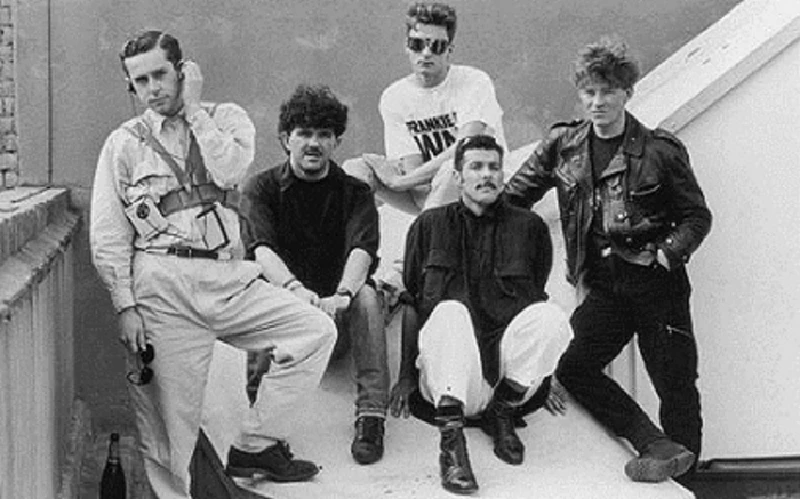
intro
Anthony Strutt speaks to Brian Nash, the guitarist with the controversial Frankie Goes To Hollywood, about his years in the 80's group and recent autobiography
Frankie Goes To Hollywood were one of the most popular and also controversial pop acts of the 1980s. Formed in 1980 in Liverpool, the group, which took their name from a newspaper headline concerning singer Frankie Vaughan becoming a film actor, combined the unabashed homosexuality of lead singer Holly Johnson and backing vocalist and dancer Paul Rutherford with the laddishness of its three other members, Brian ‘Nasher’ Nash (guitar), Mark O’ Toole (bass) and Ped Gill (drums). Frankie Goes to Hollywood first attracted public interest when as an unsigned band they performed their song ‘Relax’ on the Channel 4 music programme ‘The Tube’, in February 1983. Shortly afterwards they became the first band to sign to producer Trevor Horn’s ZTT label. ‘Relax’ was released as their first single in October of that year, and climbed up the charts to number six. In January 1984 Radio 1 DJ Mike Read took it off its turntable during his day time show branding it “obscene”, after noticing the openly sexual nature of its sleeve and its printed lyrics, which were a paean to gay sex. Two days later the record was banned across the BBC, despite the band having already performed it on ‘Top of the Pops’, and in the resulting furore the record shot to number one, where it spent the next five weeks. The group’s second single, ‘Two Tribes’, came out in May, and proved similarly controversial. Taking a topical anti-nuclear war slant and using excepts from recent British Government nuclear warning adverts, its Godley and Crème-filmed video showed caricatures of the United States and the Soviet Union’s then presidents Ronald Reagan and Konstantin Chernenko wrestling in an arena while the band members laid bets on the outcome. It shot to number one, while ‘Relax’, which like many other releases on the ZTT roster had gone through multiple remixes, climbed to number two. Frankie Goes To Hollywood finished off 1984 by releasing both their chart-topping double vinyl debut album, ‘Welcome to Pleasuredome’, and third single, ‘The Power of Love’, which became the Christmas number one. The band’s fourth single, the title track from ‘Welcome to the Pleasuredome’, reached number two when it was released in early 1985. After that, Frankie Goes to Hollywood’s popularity started to decline. Their second album, ‘Liverpool’, when it came out in late 1986 was critically mauled and, while the first single from it ‘Rage Hard’, reached number four, the two other singles from it, ‘Warriors of the Wastleland’ and ‘Watching the Wildlife’, did less well, only reaching the lower end of the Top 30. The group broke up in early 1987. Brian Nash has recently published an autobiography, ‘Nasher Says Relax’. Pennyblackmusic spoke to him about it and his years with the band. PB: Were you born and bred in Liverpool? BN: I was born in Liverpool in the year of Beatlemania, 1963, and was adopted by my mum and dad at eight weeks old. I lived in Liverpool until 1984 when my world turned upside down. PB: When you were growing up were you aware of the rich musical history of Liverpool? BN: I wasn't really aware of the musical heritage of the city until I was a teenager. I remember listening to Beatles records when I was ten, but at the time I didn't realise that they were from Liverpool. I remember being very proud when I did find out that the Beatles were Scousers. My musical heritage of Liverpool was stuff that I got into in my teens post 1977 so for me it wasn't the Beatles, Gerry Marsden and Billy Fury. It was the Bunnymen, the Teardrop Explodes and Pete Wylie. PB: When did you first take an interest in music? Was it in your teens or later? BN: I was always interested in music because my dad played a lot of records although his jazz stuff was not really up my street, but he did have ‘Sgt Pepper ‘and ‘Bridge Over Troubled Water’ so my earliest listening experience was either Simon and Garfunkel or Ella Fitzgerald. At ten years old I saw Bowie performing ‘Life On Mars’ on ‘Top of the Pops’ and it changed my life. PB: When did you first start playing guitar? BN: I started playing guitar when I was about ten years old and made my stage debut at sixteen in a school band called Smuzz playing/murdering punk classics of the time. What we lacked in talent we more than made up for with enthusiasm. Our cover version of Zeppelin's ‘Rock 'n' Roll’ stuck out like a sore thumb alongside ‘Tommy Gun’ and ‘No More Heroes’. PB: Did you attend shows at Eric’s and were you part of its scene? BN: I attended a few matinee shows at Eric's and the first live band I ever saw was Magazine. They blew my mind. Seeing them and the Cure, the Skids, Stiff Little Fingers, Wire etc is what made me want to be a musician. Being that close to the bands meant you could really feel the music and made the musicians seem a little bit more like us in front of the stage. The Cure looked like a bunch of sixth form students, and it definitely made me think that being on stage and playing in a band was an achievable target. PB: How did you all originally meet and did Frankie Goes To Hollywood first come together? BN: Frankie goes To Hollywood were formed in a place called The Bridewell in Liverpool. It was a former police station that had been converted into a rehearsal studio. Bands would rehearse in individual cells, and there was always people swapping bands from one week to the next. Holly, Ped and I were in one band called Dancing Girls. Ped left and teamed up with Mark O'Toole, and Holly joined them a few weeks later. Frankie had been playing for quite some time before Mark's brother Ged left and I replaced him. PB: The world first became aware of the band when you played ‘Relax’ as an unsigned band on ‘The Tube’. How long had it taken you to get as far as that first TV appearance? BN: I think the band had been going in that line-up about a year before we originally appeared on ‘The Tube’. They were doing a Liverpool special, and somehow an early video ended up on a desk at ‘The Tube’, they liked what they saw, and thought they would have us on as part of the Liverpool theme as we were very different from a lot of the other bands in the city at the time. I don't think the band's "vision" was anything more than having a good time and playing a few gigs. There may have been some objective of trying to get a deal and get a record released, but there was no real plan to try and conquer the world. PB: How did ‘Relax’ come about? Did you feel that it should be the first single? BN:‘Relax’ and ‘Two Tribes’ were two of the very first songs written by Frankie Goes To Hollywood, and as such were written before I joined the band. It was the obvious choice for a first single as it most the most commercial sounding track in the band's set. PB: How long did it take you to put together the songs for ‘Welcome to the Pleasuredome’? BN: We had a lot of songs for the first album before we signed to ZTT, and I don't recall writing any whilst recording ‘Welcome to the Pleasuredome’. All the songs we had in our set were used on the first album apart from a song called ‘Disneyland’ which was released some time later on a ZTT sampler album. PB: You signed to ZTT. Was there interest from other labels? Do you ever wonder would the same thing of happened had you signed to another label? BN: We signed to ZTT because they were the only label that was interested in the band. Our manager Bob had been to see a lot of labels and, although some were interested, I don't think they fancied wrestling with a band with two openly gay singers. Although the 80's were seen as liberated times there were still a lot of people who had no time for homosexuals, let alone one's running around in leather knickers and thigh pads. We were left with the choice of going back to Liverpool and regrouping for another assault, or taking the contract was on the table. Our lawyer told us that the contract was crap, but it was the only crap on the table and, despite the poor deal, we would get to work with Trevor Horn. Who knows what would have happened if we had signed to another label. We would have still been interested in working with Trevor Horn, but I am not sure he would have been keen to stay within the boundary of a budget provided by another label. He could spend as much money as he liked on his own label. ‘Relax’ sounds like it does because it morphed through four or five versions, and I don't think any other label would have allowed that indulgence. PB: Was being in Frankie Goes To Hollywood a positive or a negative experience for you? BN: The whole Frankie journey was an absolutely amazing one. The positives of the whole experience hugely outweigh the negatives. I describe it as going to a party in 1984 and coming home in 1987, and even after all this time I still think that is my best description. Every single part of it was enjoyable. Okay, when you have been asked for the tenth time that day how the band got their name then that can become a little tedious, but I was delighted to speak to anyone and still am. PB: ‘Liverpool’ was not as successful an album either critically or commercially as ‘Welcome to the Pleasuredome’. How do you feel about it now? BN: The ‘Liverpool’ album sounded great when we left Holland where we recorded it. It was a lot more raw and the sound was nearer to the original Frankie Goes To Hollywood sound, but when the tapes arrived back at Sarm West Trevor began tinkering with it for months on end and, although I like a lot of the album, there were a few tracks that got lost a little during that process. ‘Maximum Joy’ was one of those tracks. The demo of it and the version we recorded in Holland were a lot better than the one that ended up on the album in my opinion. PB: You have now written a book. How long did it take to write and was it something you always wanted to do? BN: I went to Jersey to write the book and stayed in a hotel belonging to two of my friends. It was close season, and I spent the days staring out of the dining room of The Windmills Hotel overlooking St Brelade's Bay which is a view to die for. I did three spells in Jersey of about ten days each, and aimed to write about three thousand words a day. I did a week in the mountains in Spain and a couple of days in Malmo and a few in Liverpool. In a total of about six weeks I wrote 162, 000 words. It took about another two weeks going back and forth with the editor to chop it down to 120,000 words for a four hundred page book. I had a publisher for the book before I even started writing it so that made the process a little easier as I had a target and an end goal. I had threatened to start writing one, but as soon as I knew that someone was prepared to publish it that was the spark that lit the fire. PB: Has it got rid of some demons? BN: I don't have any demons. I corrected a few things that people had said before, and there were times I laughed out loud remembering something and then writing it down. PB: Are you still friends with all the band? BN: I speak to Ped regularly because we are involved in dealing with band business, and I saw Paul recently when he visited the UK from New Zealand where he now lives but I have not spoken to Mark for a while, nor Holly. PB: Do you still record lots or are you involved with other bands at all? BN: I have a few projects I am dealing with at the moment. One is my next, and fourth solo album tentatively titled ‘Four on the Floor’. I am about to start compiling an anthology type release for stuff I recorded with Grant Boult under the name Low for Swanyard Records in 1992. There are 32 songs and a bunch of video stuff. I am also producing a guy from Liverpool called David Tyrell and we have been recording his album over the last year under the band name of Ground Pilots. I don't really like to talk about stuff until it is mastered and bagged, but it is really coming on and evolving into a bit of a beast and I am quite excited to hear what it will sound like when it's all done. PB: Is there any new talent in Liverpool that you like? BN: The most recent talent I saw from Liverpool was a band called the Romleys who are like an early Kinks / Beatles hybrid. I saw them play recently and thought they were great. PB: There have been a lot of Frankie Goes To Hollywood reissues and remixes on ZTT in recent years. You were apparently disappointed with the latest one, weren’t you? BN: The last Frankie Goes To Hollywood compilation was ‘Sex Mix’. ZTT were alerted to the fact that there was a problem with the sound of it when one of our fans got his hands on a promo copy in Germany. He discovered that the first five tracks of the release were in mono, but not true mono. True mono is a composite of two sides of stereo, but this album had the left or right and side duplicated in both channels so when you heard something like ‘Welcome to the Pleasuredome’ anything that was panned hard to say the right hand side was now completely missing from the mix. When ZTT were made aware of it they issued, in my opinion, a rather arrogant statement on their website saying there had been a "technical **** up" and that at some point down the line there may be a loss less replacement track available. This got the fans back up, many of whom boycotted the release. Both Ped and I tried to contact ZTT to ask what was going on but they refused to speak to us. This was the case with their licensee Salvo who would not answer emails or return calls. Weeks later this "**** up" was converting into a marketing campaign with Salvo claiming it was bringing the fans the tracks in "Glorious Mono". I believe that their record label have shown no respect to the band's material and no respect for the people buying their product. I think this release will be the last for a lot of Frankie Goes To Hollywood fans. I had to buy the album to hear it as neither ZTT nor Salvo would send me a copy. I don't know to this day whether the blame lies with ZTT or Salvo, but it is a really unforgiveable error. When people master recordings these days, they can see the audio as well as hearing it, so, whilst it might be forgivable for a cloth-eared engineer to have missed the sound of it, then there really is no excuse for not seeing the fact that the two streams of audio were identical. The tracks sound pretty awful, and it is pretty poor that such an amazing example of stereo splendour like ‘Welcome to the Pleasuredome’ is released sounding nothing like it was meant to be heard. PB: Do you have any future plans? MN: Every day above ground is a bonus. I plan to stay at the crease. I would do another book but about what I have no clue. Let's see! PB: Thank you.
Picture Gallery:-
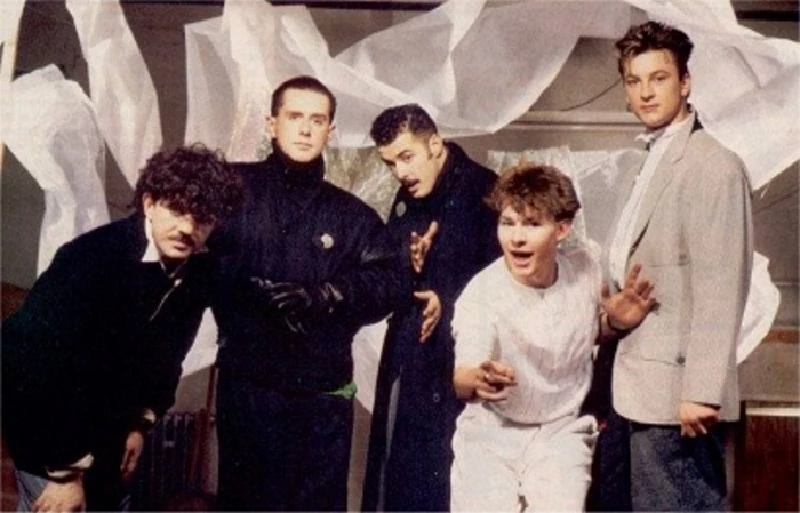
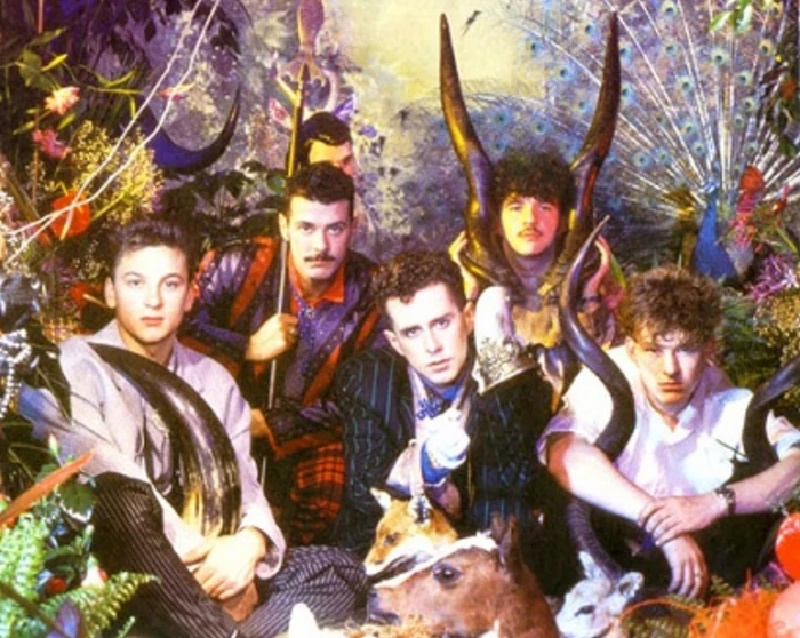
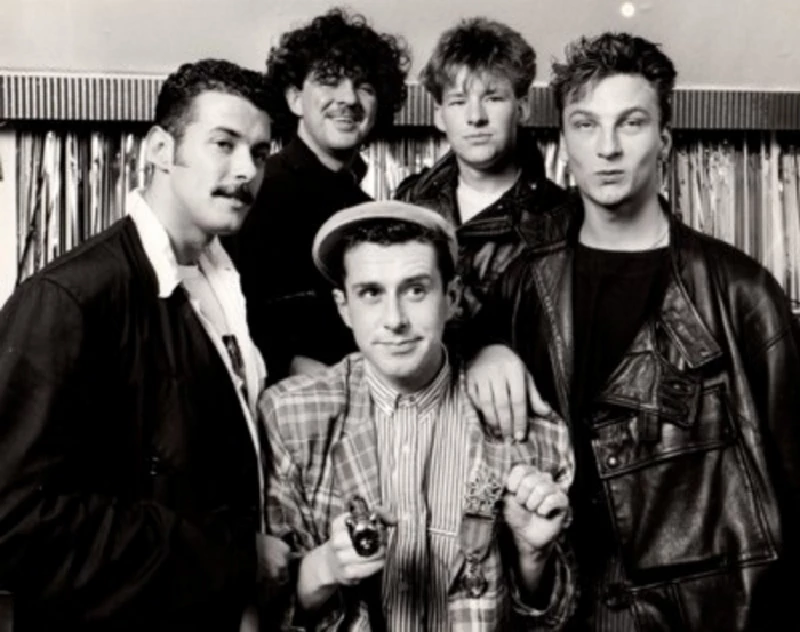
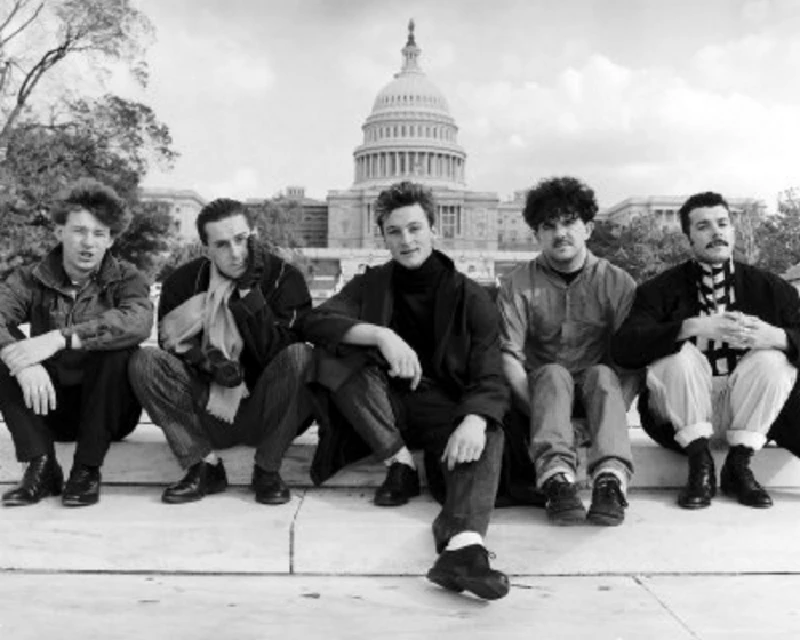
interviews |
|
Interview with Paul Rutherford (2013) |

|
| Paul Waller talks to Frankie Goes To Hollywood vocalist and dancer Paul Rutherford about his influential and controversial group and also his solo career |
favourite album |
|
Liverpool (2011) |
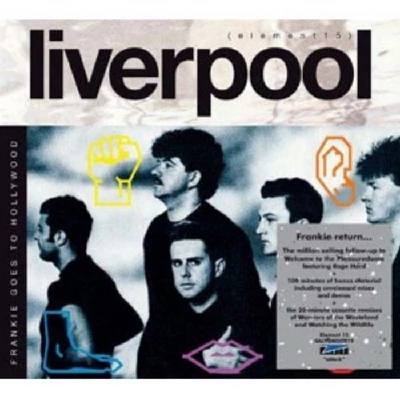
|
| In our 'Re:View' column, in which our writers reflect on albums from the past, Fiona Hutchings examines Frankie Goes to Hollywood's 1986 second album, 'Liverpool', which split critics upon its release and has just been re-released in a double CD reissue |
| Welcome to the Pleasuredome (2010) |
most viewed articles
current edition
Carl Ewens - David Bowie 1964 to 1982 On Track: Every Album, Every SongBillie Eilish - O2 Arena, London, 10/7/2025
Bathers - Photoscapes 2
Cleo Laine - 1927-2025
John McKay - Interview
Editorial - July 2025
Simian Life - Interview
the black watch - Interview
Chris Wade - Interview
Cathode Ray - Interview
previous editions
Heavenly - P.U.N.K. Girl EPTrudie Myerscough-Harris - Interview
Pixies - Ten Songs That Made Me Love...
Boomtown Rats - Ten Songs That Made Me Love....
Fall - Hex Enduction Hour
Peter Paul and Mary - Interview with Peter Yarrow
Sam Brown - Interview Part 2
And Also The Trees - Eventim Apollo, London, 21/12/2014.
Place to Bury Strangers - Interview
Miscellaneous - Charity Appeal
most viewed reviews
current edition
Sick Man of Europe - The Sick Man of EuropeAmy Macdonald - Is This What You've Been Waiting For?
Phew, Erika Kobayashi,, Dieter Moebius - Radium Girls
Alice Cooper - The Revenge of Alice Cooper
Blueboy - 2
Lucy Spraggan - Other Sides of the Moon
Cynthia Erivo - I Forgive You
Bush - I Beat Loneliness
Davey Woodward - Mumbo in the Jumbo
Philip Jeays - Victoria
related articles |
|
Holly Johnson: Interview (2014 |
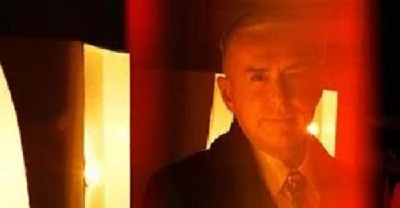
|
| Ex-Frankie Goes To Hollywood front man Holly Johnson speaks to John Clarkson about ‘Europa’, his first solo studio album in fifteen years |
Pennyblackmusic Regular Contributors
Adrian Janes
Amanda J. Window
Andrew Twambley
Anthony Dhanendran
Benjamin Howarth
Cila Warncke
Daniel Cressey
Darren Aston
Dastardly
Dave Goodwin
Denzil Watson
Dominic B. Simpson
Eoghan Lyng
Fiona Hutchings
Harry Sherriff
Helen Tipping
Jamie Rowland
John Clarkson
Julie Cruickshank
Kimberly Bright
Lisa Torem
Maarten Schiethart